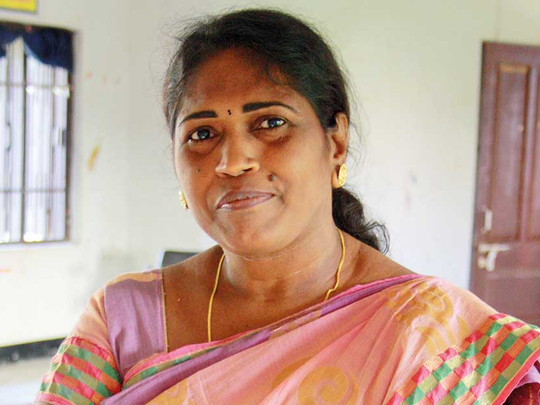
In a fit of drunken rage, Shyam, a labourer, killed his wife. Arrested and convicted, he was sent to prison. With no one to take care of his four-year-old son, the child was allowed to live inside the prison premises. Two-year-old Chhoti suffered a similar fate when her parents were convicted and imprisoned for murdering a relative in a property dispute.
Numerous children up to the age of five whose parents are convicts live in prison, and they can be allowed to stay for a year longer on special request. However, after they turn six, children are not allowed to stay within prison premises under the terms of a law passed by the Indian government. Following a Supreme Court ruling, it is mandatory for Indian prisons to provide crèches for children under three and nurseries for those aged three to six. But these rulings are generally ignored and the children of convicts often end up being ostracised by people. It often results into helpless children taking to petty crimes and suffering further in the process.
In 2003, social activist Niroja Laxmi Mohapatra found two such children playing on prison grounds in Bhubaneswar, Odisha. The incident not only changed the course of her life, but also transformed the lives of many youngsters subsequently.
“I was part of the state government’s reform programme that was being carried out across the state,” Nijora tells Weekend Review. “I regularly visited prisons to counsel women inmates. It was on one such visit to Bhubaneswar Special Prison that I happened to find two children, Gobind and Bebina, playing in the prison courtyard. On enquiring, I found that Gobind was living with his father and grandmother, both of whom were convicted for the murder of Gobind’s mother. Similarly, Bebina’s parents were sent to prison for the murder of their landlord. The prison superintendent also mentioned that because children were shunted around, many never got the chance to study and live a decent life. That day, I went home a very troubled person.”
She realised that for no fault of theirs, thousands of innocent children were socially boycotted and psychologically depressed. Shunned by even children of their age, they were ridiculed and stigmatised. Deprived of parental support and affection and with no access to education, some were forced to work as child labourers or resorted to begging for food.
Several sleepless nights later, Niroja came up with a concrete plan – a hostel for children of prison inmates.
“I discussed the idea with then Inspector General of Prisons, Bidya Bhushan Mohanty, who immediately forwarded the proposal to the state Women and Child Development department. The Police Housing Board Corporation department was more than keen and funded the project,” Niroja recalls.
The hostel, named Madhur Mayee Adarsh Sikshya Niketan (MMASN), a specialised project run by NGO Patita Uddhar Samiti, was launched. Set up near Jharpada Prison in Bhubaneswar, it was inaugurated by state chief minister Naveen Patnaik. The first of its kind in India and the only such in the state, it caters to the emotional and social needs of children, and works towards mitigating the shock they have suffered due to the faults of parents’ and the damaging effect on their lives. At present, the hostel shelters 61 children aged three to 19 of convicts serving imprisonment in 21 prisons across Odisha.
While Gobind and Bebina were the first to be admitted, within no time and with help from prisons in the state, there were many more children to join them.
“Initially, it was very difficult to suddenly tend to 23 children, as we had to take care of all their needs – food, clothing and other necessities,” she says. “We also realised children were finding it difficult to adapt to a new life and spent days making them feel comfortable by telling them stories and making them sing and dance and mixing around with one another.”
Since financial assistance from the state government was limited, Niroja decided to raise funds from the public. She went door-to-door to collect donations, so that, apart from offering basic facilities, she could also provide them with proper education. Leading normal lives, children study and indulge in extracurricular activities including dance, music and painting.
“Contrary to what people may think, every person, including a prisoner, desires to see his or her child receive a good education,” Niroja says. “Parents are worried about their children’s future. And we ensure that they are not only given education but are also imparted training in fine arts, computers and preparing craft materials from waste products. Many of them have won competitions at inter-state and national levels. A safe haven, the hostel has since benefited numerous children – some of whom have left after obtaining jobs and others on uniting with their parents after their release from prison.”
So, do the children summer from any complexes because of their parents?
“Memories of their past do resurface at times but we are now accustomed to tackling these,” she says. “I admit children of prison inmates live under a great deal of mental stress, because all said and done, society does look at them differently. But we regularly counsel them so that they are able to express their emotions honestly. I strongly believe that environment and upbringing can help to shape a child into being a better human being. But at the same time, I expect the society to change its attitude towards these children and help them overcome hardships.”
It is noteworthy that unlike institutions trying to shield children from outside sources including interaction with the media, Niroja is of the view that it was better to expose them to the world and let them grow in a normal manner.
“We make them feel secure and protected and aim at alleviating their sufferings by confronting the problems and providing them with solutions. I feel, over-protecting them could lead to low self-esteem,” she stresses.
“One day I went to a prison in Rourkela, where I met parents of grown-up children. They were willing to send their sons to the hostel. I went to their native village and found that both children were spending time grazing cattle. They wanted to study but no one would help them. I brought them to the hostel. They have been performing well academically, having set an example for other children to follow.”
Ever since, Niroja has visited several prisons throughout Odisha to counsel and convince inmates to send their wards to her hostel.
“Such is our image that teachers from prestigious institutions visit our hostel to request us to admit our children into their schools and colleges,” she says.
Due to her concerted efforts, some children have become engineers, others are pursuing higher education and technical courses. Manas and Bighnaraj enrolled for medicine and engineering after performing well in pre-medical tests and the joint entrance examination, Rekha and her sister Anjali study in colleges and visit their relatives and family members during vacations, and Rohit secured admission at ITI, setting engineering as his goal.
Niroja, who has preferred to remain single, devotes all her time to social causes. Having graduated in 1992, she completed her Masters’ degree from Utkal University before working as a teacher and then getting into social work.
“The hostel children are my family now and I cannot spend a single day without them,” she says. “Finances, nonetheless, continue to remain a challenge, but that does not deter me from hoping to provide them better life alternatives.”
Nilima Pathak is a journalist based in New Delhi.
How to help:
MMASN is registered under the Societies Registration Act of 1860, the Foreign Contribution Regulation Act (FCRA) of 1976 and the Income Tax Act, 1961 for exemption of donations under Sec. 80-G. The sole objective of the hostel is to provide free and quality education and caretaking to the children of convicts undergoing imprisonment. Those willing to help may contact nl.mohapatra2015@gmail.com












